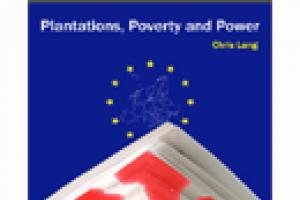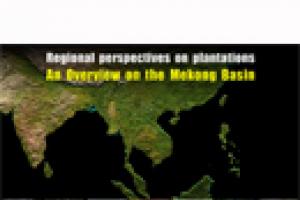Movements and organizations from Asia have made a declaration rejecting the “Green Economy” being proposed by global institutions and now the subject of debate in the Rio+20 process, for several reasons including:
Asia (general)
Bulletin articles
30 May 2012
In Asia, as in many other parts of the world, forest areas have been inhabited by successive generations of indigenous communities. For these peoples, the forest has come to play a central role in their socio-cultural identity and their survival as a community. But today, many of these forests are being cleared and replaced by industrial oil palm plantations – in many cases, on lands granted to companies by the state on the pretext that they were vacant or idle lands!
Other information
30 July 2011
Women of South Asia working in several areas including health, nutrition, livelihood, environment, gathered in Dhaka, Bangladesh on July 2 and 3, 2011, for the Third Annual Conference of SWAN (South Asia Women’s Network), which was dedicated to the theme of “Women of South Asia and the Green Economy”.
Other information
16 June 2011
Only available in Spanish -
By Guadalupe Rodríguez, Salva la Selva.
Bulletin articles
5 May 2011
Often hidden, neglected or unknown, the underlying causes of deforestation are multiple and varied. And even odd.
Maybe many people are rather familiar with the idea that overconsumption in high-income countries constitutes a major underlying cause of deforestation but not so aware that pet’s consumption patterns share responsibility for the dissappearance of forests.
Bulletin articles
27 February 2010
The December 2004 tsunami that played havoc on several Asian coasts also exposed the level of human-made destruction of protective greenbelts including mangroves along coastlines. The need to re-establish natural protective greenbelts followed suit with quite often failed attempts.
Publications
18 December 2008
By Chris Lang
Publications
15 December 2008
Eucalyptus, oil palm, rubber and jatropha monoculture plantations are expanding onto local communities’ lands and forests in the Mekong region’s countries. Promoted under the guise of development, poverty alleviation and even climate change mitigation, such plantations are resulting in severe social and environmental impacts.
Bulletin articles
24 July 2008
Over 170 activists who gathered in Bangkok from 12-14 July harshly criticised governments and corporations for their failure to reduce greenhouse gas emissions. They called for "climate justice" and a "fundamental departure from the current global order" to solve the climate crisis. Conference participants included fishers and farmers, forest and indigenous peoples, women, youth, workers and non-government activists from 31 countries.
Other information
23 May 2007
At the end of April this year, the Brazilian Rural Landless Workers Movement (MST) was host at its Florestan Fernandes National School (Guararema, Sao Paulo) to almost 80 members of social movements and organizations from South America, Asia, Africa, and Europe attending the International Meeting on Monoculture Eucalyptus Plantations. The aim of this meeting was to define an agenda for joint action against the advance of monoculture tree plantations and pulp mills at global Southern level.
Bulletin articles
23 May 2007
The hegemony of the G8 in international forums such as the United Nations Framework Convention of Climate Change means that global climate policy is been chosen for its compatibility with the existing economic system rather than its effectiveness in reducing emissions.
Bulletin articles
29 December 2006
Large-scale rubber, oil palm, eucalyptus and pine tree plantations are being promoted by governments in Cambodia, China, Laos, Thailand and Vietnam. However, affected villagers are openly protesting against them. At a meeting held last month in Cambodia we learned that local communities are strongly opposing these plans because they see that these plantations are encroaching on their lands and impacting on their livelihoods.



